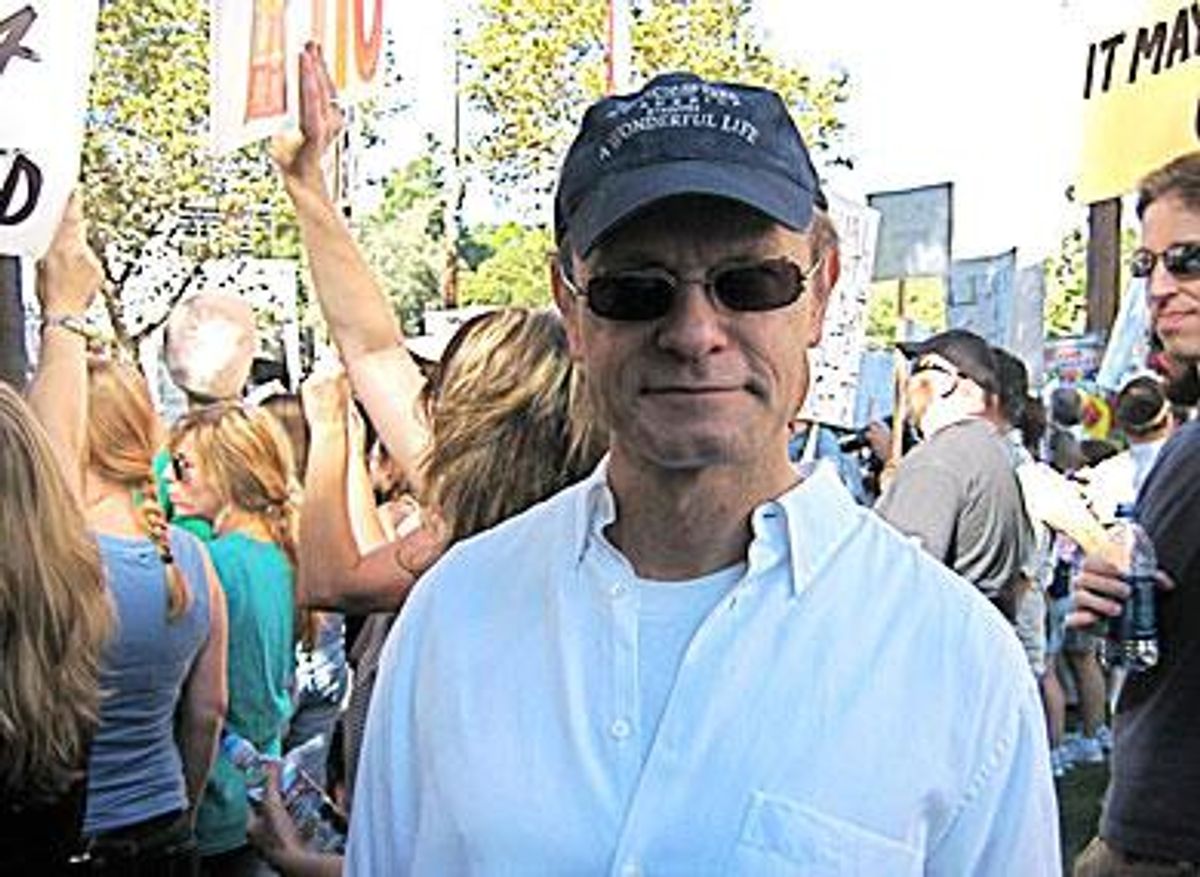As Dr. Niles
Crane on the hit sitcom Frasier, David Hyde
Pierce had a great deadpan. That also extended to his own
life: For years he wouldn't confirm or deny being
gay. Since then he thawed enough to thanked his
longtime partner, Brian Hargrove, in his 2007 Tony
Award acceptance speech.
And on Saturday,
Pierce was one baseball-capped protester among maybe
20,000 others marching for equality in Los Angeles. He was
still deadpan -- dead serious. But in five minutes he
told me more than he's ever said in his stellar
career.
As we talked, I
noticed Pierce was wearing a wedding ring. I asked, and
he confirmed: "Yeah, we got married three weeks
ago."
Advocate.com:David, why are you here now? For a long time
you've chosen to be circumspect about -- I
remember you saying, "My life is an
open book, I just don't choose to read
it." Why now?David Hyde Pierce: For one thing, I said that
15 years ago, so life has changed a lot in 15 years. But
this is not about being gay. This is about having the
basic right of life, liberty, and the pursuit of
happiness, and having that put up for a vote, not only
here in California but across the country, and that is just
fundamentally not what this country is about. And I
completely understand the passions on both sides of
this issue, but like I said, those rights are not
negotiable no matter whether people like it or not.
We're not trying to force anything on anyone.
We're trying to go about our lives and live
them the best that we can. So that's why I'm
here, and that's why all these people are here.
Do you foresee now that more celebrities will
become involved in speaking out against Prop. 8, now
that it's passed? I have no idea what celebrities will do. I think
the real issue for me is that this should never have
been something that people voted on. This is not a
country where people get to vote on people's private
lives, where people vote on whether we get to pursue
life, liberty, and happiness. That's part of
the fundamental right of being an American. And so that,
to me, is the miscarriage of justice -- not the way the vote
went. I'm proud that at least in California it
was close. There are other states where it
wasn't close at all, and they even took away the
right to adoption. To me, the issue is, this should
not be an issue divided by voters.
When friends ask you to separate or distinguish
between religion and civil law on this issue -- it seems
to be a point of confusion for so many people
--what do you tell them? A: Religion and civil law are already separated
in this country. And I actually don't think
it's so much an issue of separation of church and
state; I think it's a separation of emotion and fear,
and passions getting stirred, from reality. The
reality is, this whole marriage thing doesn't
affect anyone but the people getting married. And people
have been led to believe and the passion's been
stirred up that it's going to affect their
children and it's almost as they think, if gay people
can get married, then the whole country has to turn
gay. It's craziness, and it doesn't deal
with the simple reality. The reality of the vote, what
people were really voting on here, was, do you believe that
the people of California should have a right to vote
on who you choose to marry, whether you're
straight or gay. That was the vote. And miraculously, the
people of California voted yes, we think everybody should
get a vote in our marriage. They can't have
meant that. They can't have really understood
what they were voting for and voted for that, because it
doesn't make any sense.


















































































